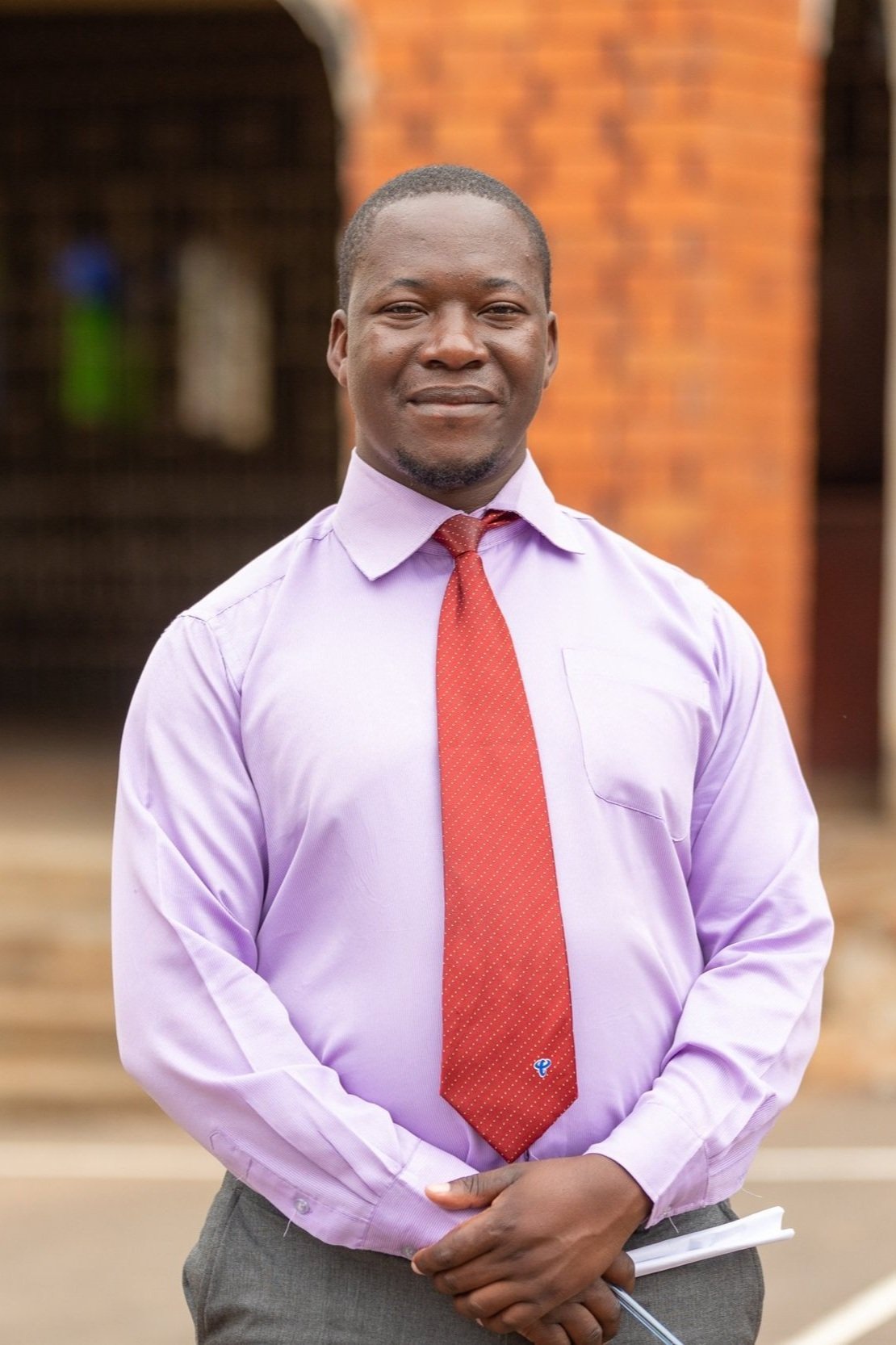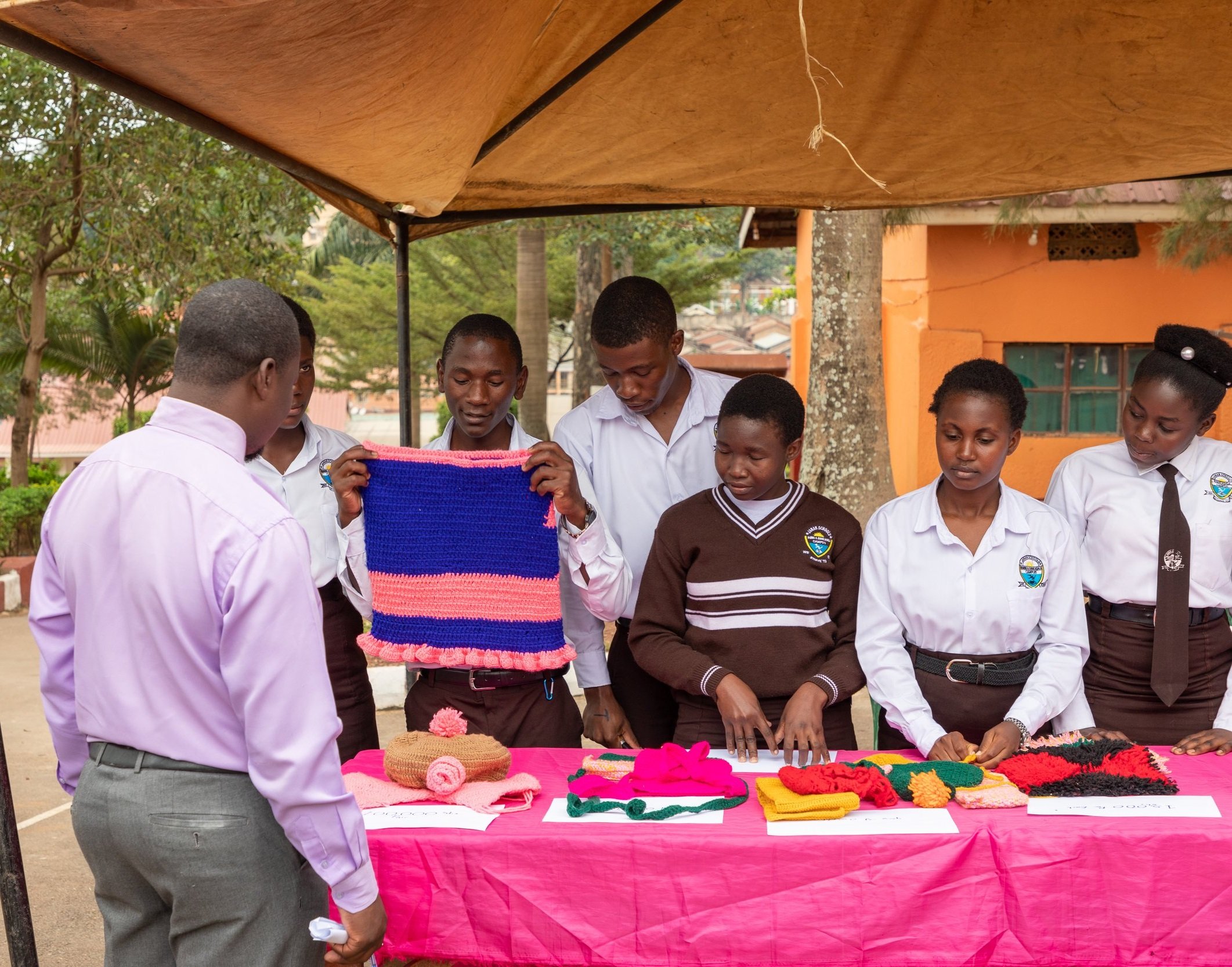From Education to Occupation: Thriving in Today’s Economy with Skills Lab
As education systems in Africa grapple with preparing students for the realities of a labor market marked by unique challenges, innovative teaching methods have a critical part to play. Every year around 10-12 million young people enter the workforce in Africa. However, they’re met with a daunting reality – only three million formal jobs are available. According to the International Labour Office, this leaves nearly 95% of the continent's youth to find employment in the informal sector.
Many secondary school graduates leave education without the practical skills to secure employment or start a business. Our student-centered pedagogy, known as Skills Lab, has been pivotal in closing the gap. For over a decade, the approach has been a key component of the Educate! Experience, an employment-focused course that has impacted over 200,000 youth in Uganda.
Secondary students like Maxwell have found that Skills Lab prepares them more effectively for the world of work. As a budding entrepreneur, he dreams of creating and selling quality bags. Through Skills Lab, he's learned how to set and achieve goals as the approach encourages learners to apply their knowledge to address community challenges.” I’ve learned to be a job creator. I know how to make a business model and business plan,” he says with determination.
“I've learned to be a job creator. I know how to make a business model and business plan. I can move on to the future and also earn some money during my school break.”
- Maxwell, Secondary Student
What is the Skills Lab approach?
Skills Lab is not your typical classroom experience. It's a dynamic pedagogy that immerses students in real-life scenarios, fostering interactive activities, group collaboration, and creative problem-solving within a supportive learning environment. Here, soft skills like communication and critical thinking are seamlessly woven together with the hard skills of business planning, budgeting, saving, and market research.
With Skills Lab students play an active role in their own learning journey
How does Skills Lab prepare students for today’s economy?
Skills Lab breaks down the learning process into three stages: Build, Practice, and Present.
Build
The educator sets the stage for the lesson, building on the students’ existing knowledge to introduce new concepts. This approach promotes active engagement and provides a clear learning objective. For instance, in a lesson on generating business opportunities and creating new products, the teacher will ask for examples of businesses that youth use themselves.
Practice
Overall, the Skills Lab approach aims to reduce “teacher talk time” and increase “student talk time.” Working in groups, students take on practical tasks that require critical thinking as they answer difficult questions. Group work fosters the development of soft skills such as teamwork, communication and active listening.
Here, the different groups might be asked to consider how their product will solve a community need. They might discuss their production and sales goals, and what strategies they’ll use to secure a competitive advantage and retain customers.
This stage promotes equal participation among all students, including girls and boys. In line with Educate!’s gender-transformative approach, this creates an inclusive classroom environment which accommodates different learning styles and challenges gender norms.
Present
Students showcase the outcomes of group work, enhancing their confidence, public speaking and leadership abilities. Feedback from peers and educators facilitates reflection on their efforts as well as continuous learning.
Below, you can explore an example of a lesson plan following Skills Lab's three-stage experiential learning approach.
What is the impact of Skills Lab?
Evaluations of Educate!’s model tell a hopeful story. According to a randomized controlled trial conducted in Uganda, graduates of the Educate! Experience earn nearly DOUBLE the income of peers and are 64% more likely to start a business by the end of secondary school.
Ronald Busulwa, headteacher at Maxwell’s school, underscores the impact of hands-on teaching, not only on students but also on the wider community. He notes, "I've seen children apply their learning to benefit their community. They have made very nice products created from resources that some people consider waste, contributing positively to the environment. It's truly impressive."
Ronald Busulwa, headteacher at Maxwell’s school, receiving a sales pitch from his students
What is the future of skills-based learning across Africa?
Looking ahead, integrating approaches like Skills Lab into national education systems – along with initiatives that support out-of-school youth – presents an opportunity to amplify positive outcomes and improve youth prospects on a larger scale. Educate!'s long-term vision is that by partnering with governments and local communities, we can develop solutions that have a measurable impact on millions of young people across Africa.
By 2025, our goal is to grow our annual reach by 4x, supporting over 400,000 new youth. To this end, Educate!’s efforts with Skills Lab are already expanding across the region through collaboration with governments, education actors, policymakers and funders. For the last eight years, the organization has been collaborating with Rwanda’s Ministry of Education to integrate skills-based learning into the country’s education system. In Tanzania, Educate! has partnered with the government to co-design a new secondary subject, making learning more aligned to the labor market.
This shift towards student-centered learning and practical, hands-on experiences has the potential to equip young Africans with crucial skills for a promising future, empowering them to become catalysts for change. Skills-based learning will not only impact individual students, but also contribute to global economic growth. A workforce equipped with the right skills is more likely to innovate, start businesses, and drive towards a brighter future.










